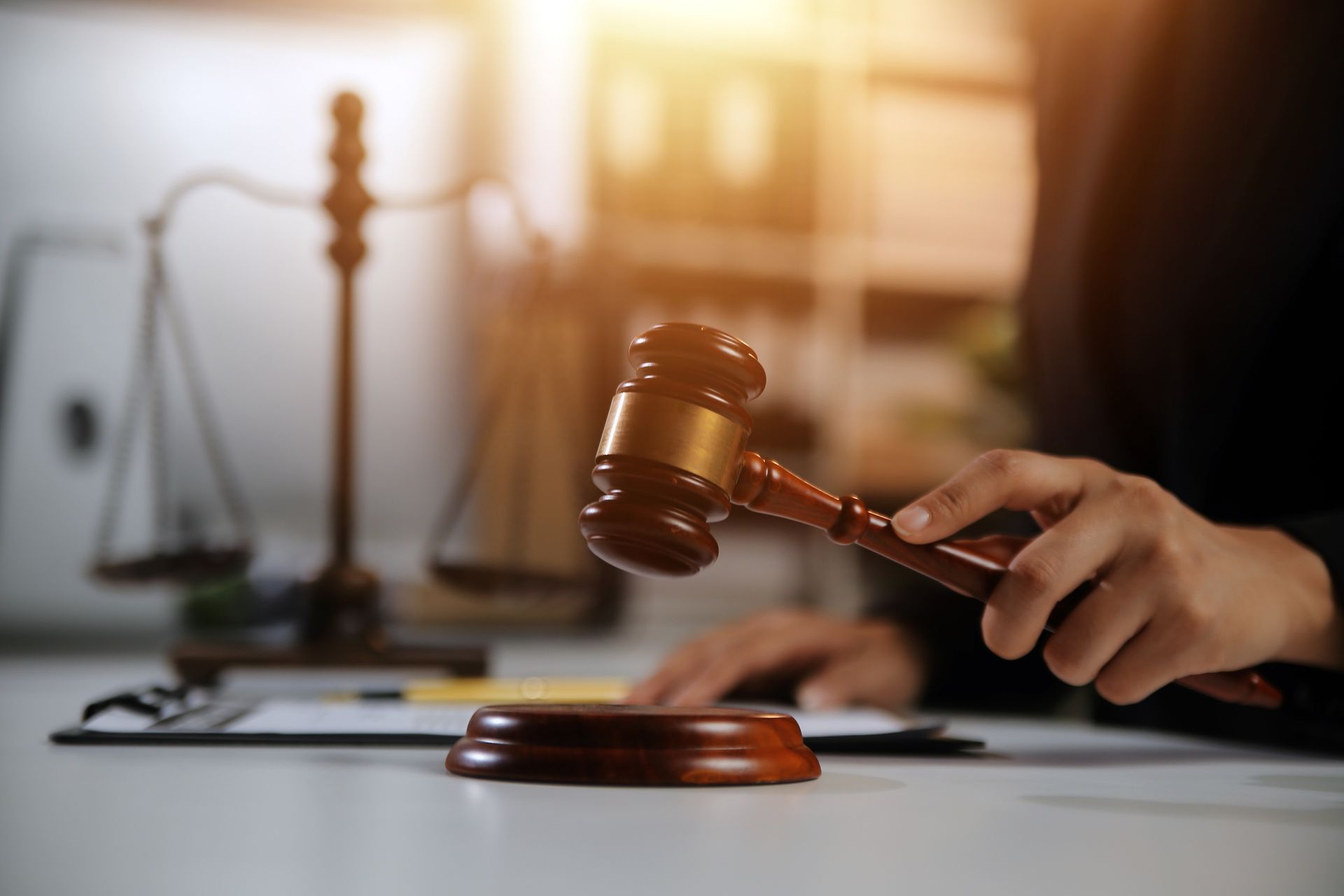Sargon Law Blog
Recent Blog Posts
How Do You Know If Your Deposition Went Well?
Depositions commonly happen before civil and criminal matters go to trial. While the parties may not be able to use everything that happens in a deposition as evidence in a trial, the outcome is still important. How do you know if your deposition went well?
How Do You Know If Your Deposition Went Well?
Depositions are part of the pretrial discovery process. To evaluate whether your deposition went well, you must first understand the deposition process.
Deposition Process
Depositions are a multi-step process that begins with a summons to appear for the deposition.
Summons
The deposing party must first serve a summons on the person to be deposed. In Arizona, a party may depose:
- Anyone who is a party to the case
- Any person disclosed as an expert witness
- Any document custodian
No party may depose any other person unless all parties agree or the court orders otherwise. Parties cannot depose someone who a party has already deposed for the same case. Additionally, a party must obtain the agreement of the person's custodian or an order from the court to depose an incarcerated person.
The deposing party must wait at least 30 days after serving the summons to take the deposition. The waiting period is 60 days for witnesses.
Unless the court orders it or all parties agree to it, the deposing party must notify every other party at least 10 days before the date of the deposition. The notice should contain the date, time, and place of the deposition and the deponent's name and address if known.
Deposition
Depositions take place outside of court with no judge or jury present. However, an officer of the court must be present.
A court clerk or certified reporter will administer the same oath that persons testifying in a court case must take. The deposing party asks the deponent questions, and the deponent must answer truthfully.
A certified court reporter or another person that all parties agree on records the questions and answers. The recording party cannot be a friend, family member, or employee of any party or an attorney or member of an attorney's staff.
The opposing attorney can make objections to questions for the record. However, there is no judge to rule on the objections, so the deponent must still answer the question. When the deposition is complete, the recording party produces a transcript for all parties to review.
What You Should Know About the Deposition Process
There are several factors to keep in mind about the deposition process:
- Once you take the oath, you must tell the truth or you could face penalties for perjury.
- Not everything that happens during a deposition is admissible as evidence during a trial, but the opposition can use anything that is admissible against you.
- The deposing party can ask questions that aren't allowed in court, and you must answer them even if they aren't relevant to your case.
- Deposing parties may not take advantage of the broader nature of deposition questions to harass, intimidate, or unduly embarrass the deponent.
- Unless the parties agree or the court orders it, Arizona law requires deposing parties to complete depositions in a single day and take no more than four hours. Arizona law limits parties to five total hours of deposition for all fact witnesses.
You can have your attorney present during a deposition and should ask questions if you are unsure about the process or your rights. However, your attorney cannot coach you during the deposition.
Purpose of a Deposition
The deposition serves several purposes as part of the discovery process.
Evaluate Witnesses
The deposition provides the deposing party with the opportunity to evaluate how likely a witness is to help or harm a case at trial. Attorneys can assess whether witnesses seem truthful and whether the jury will like or believe the witness.
Gather and Authenticate Information
The deposing party can use the testimony of the deponent to identify other potential witnesses and discover any relevant documents or other evidence. They may also ask the deponent to authenticate documents and other evidence.
Gain Admissions
The deposing party may deploy various tactics to attempt to get deponents to admit to something that harms their case. However, deponents can exercise their Fifth Amendment rights to avoid self-incrimination in criminal proceedings.
Preserve Testimony
Trials sometimes happen months or years after the incident the trial is about. Depositions provide parties with the opportunity to preserve testimony while it is fresh.
Additionally, if a deponent cannot appear at the trial, the parties may be able to use the transcript from the deposition as evidence in place of the person's live testimony. Parties can also compare the transcript to the deponent's testimony in court and ask questions about any differences.
Build a Strategy
The information parties gain during a deposition may shape how they plan to defend their case or attack the opponent's case. It can also provide insight into how the parties believe the opposition will present their case.
Signs Your Deposition Went Well
The best way to determine if your deposition went well is to ask your attorney. Your attorney can give you an honest evaluation of how well you performed and point out anything that happened that may have weakened your case.
If you feel confident that you answered all of the questions truthfully and you remained calm throughout the process, your deposition probably went well. Your deposition was probably successful if the opposing attorney:
- Didn't ask you many follow-up questions
- Appeared satisfied with your answers
- Didn't object to many of your statements
- Didn't ask you to clarify many points
- Didn't ask you to review or change your testimony
These are all signs that the opposing attorney believes your testimony was credible and consistent. If your deposition significantly strengthened your case, the opposing attorney may attempt to negotiate a settlement rather than go to trial. In a criminal case, your attorney may attempt to get the prosecution to drop the case or reduce the charges.
What Happens If Your Deposition Didn't Go Well?
The results of a poor deposition depend on the circumstances. If you get caught having lied under oath, you may face perjury charges and the opposing party will probably use your dishonesty to impeach your testimony in court.
If you intentionally or unintentionally revealed information that significantly weakened your case, your attorney may attempt to negotiate a settlement or plea deal to avoid the risk of going to trial. However, the weaker your case is, the more likely the opposition will be to insist on going to trial. If the other party refuses to settle out of court, your attorney will formulate a strategy to counteract the damaging information.
The opposition may employ tactics to frustrate or anger you so that you make mistakes or become emotional while testifying at your deposition. If it works, they are likely to repeat these tactics at trial. If your deposition went poorly because you were nervous or angry or fumbled your answers, your attorney will work with you to improve your testimony before your court date.
How Can You Prepare for a Deposition?
The best way to ensure your deposition goes well is to prepare for it.
Work With an Experienced Attorney
You don't have to have an attorney present for your deposition. However, an experienced attorney will anticipate the questions the deposing party is likely to ask and can help you prepare for them.
The better prepared you are, the less likely you are to fumble your answers or get frustrated or angry during the deposition. An attorney can also explain the process and your rights and advise you about what you should and should not do during the deposition.
Dress Appropriately
Business casual attire is usually appropriate. Avoid sandals, flip-flops, t-shirts, jeans, shorts, and any clothing that is too revealing. If you aren't sure what to wear, your attorney can suggest something.
Maintain an Appropriate Demeanor
The opposition may attempt to rattle you during questioning to get you to reveal incriminating information or to discover weaknesses they can exploit at trial. Remain calm, courteous, and polite, but remember the opposition is not your friend.
Even if you like the other party, avoid being overly friendly. You may feel like you want to help the other party out, but volunteering information you are not asked about is not a good idea.
Answer Truthfully and Precisely
Because you are under oath, you must answer truthfully. However, do not volunteer information. Only answer the questions the attorney asks. The opposition can use anything you volunteer against you in court.
Don't strike up a friendly chat with anyone during breaks. If the person asking you questions pauses, resist the temptation to fill the silence. Remain silent until someone asks you another question.
If you don't know the answer to a question, say so. Never guess or speculate. Always review documents and other evidence before you answer any questions about them.
Make Sure You Understand the Question Before You Answer
Listen carefully and take some time to think about your answer before you speak. If you don't understand the question, ask for clarification.
Don't Bring Documents To Help With Your Testimony
If you fear you will forget important information, you may want to bring notes, documents, or other aids to help you remember. Don't do this. The opposition can review anything you bring with you to use during your testimony and may find information you didn't mean to reveal.
Prepare Yourself for Sensitive Questions
The opposition can ask about almost anything. This may include sensitive topics that you aren't comfortable talking about. Your attorney can advise you on how to deal with these types of questions.
Exercise Your Fifth Amendment Rights Carefully
If you are testifying in a criminal matter or a civil matter that could lead to criminal charges, you can invoke your Fifth Amendment rights to not incriminate yourself. However, talk to your attorney before the deposition about whether you should. Once you invoke these rights during your deposition, you must do the same at trial.
Correct Your Mistakes
If you forget something or misspeak during your testimony, tell your attorney at the next break. In most cases, you can correct yourself for the record. Additionally, you will receive a transcript of the deposition that you can review with your attorney and correct if needed.
Prepare for Your Physical Needs
If you are hungry, tired, or thirsty, need to use the bathroom, or are in pain, you will probably not perform as well as you otherwise would. Arrive early so you can locate the restroom and any food or beverage you have access to.
Don't eat during the deposition, but bring some healthy snacks to have during breaks. If you need any accommodations due to health conditions or disabilities, tell your attorney. Ask for breaks when you need them.
What Happens After the Deposition?
When your deposition is complete, all parties will review the transcript. The attorneys may then attempt to negotiate a settlement or plea deal.
If your case settles out of court, the transcript of your deposition may be confidential. However, if you proceed to trial, the opposing counsel may use the information from the deposition to gather additional testimony and identify potential expert witnesses.
Either party can read the deposition into evidence at trial if you cannot appear because of death, sickness, insanity, infirmity, or absence from the state. If this happens, the court will treat your testimony from the deposition as if you had testified in court.
How Can Sargon Law Group Ensure Your Deposition Goes Well?
The experienced Phoenix injury attorneys at Sargon Law Group will explain the deposition process to you and make sure you are well-prepared to give your testimony. We will also protect your rights and ensure the other party follows the law during the deposition process.
After your deposition, we will tell you how well your deposition went and work on strategies to address any weaknesses before your case goes to trial. Don't face the justice system alone. Contact us today for a free consultation.





